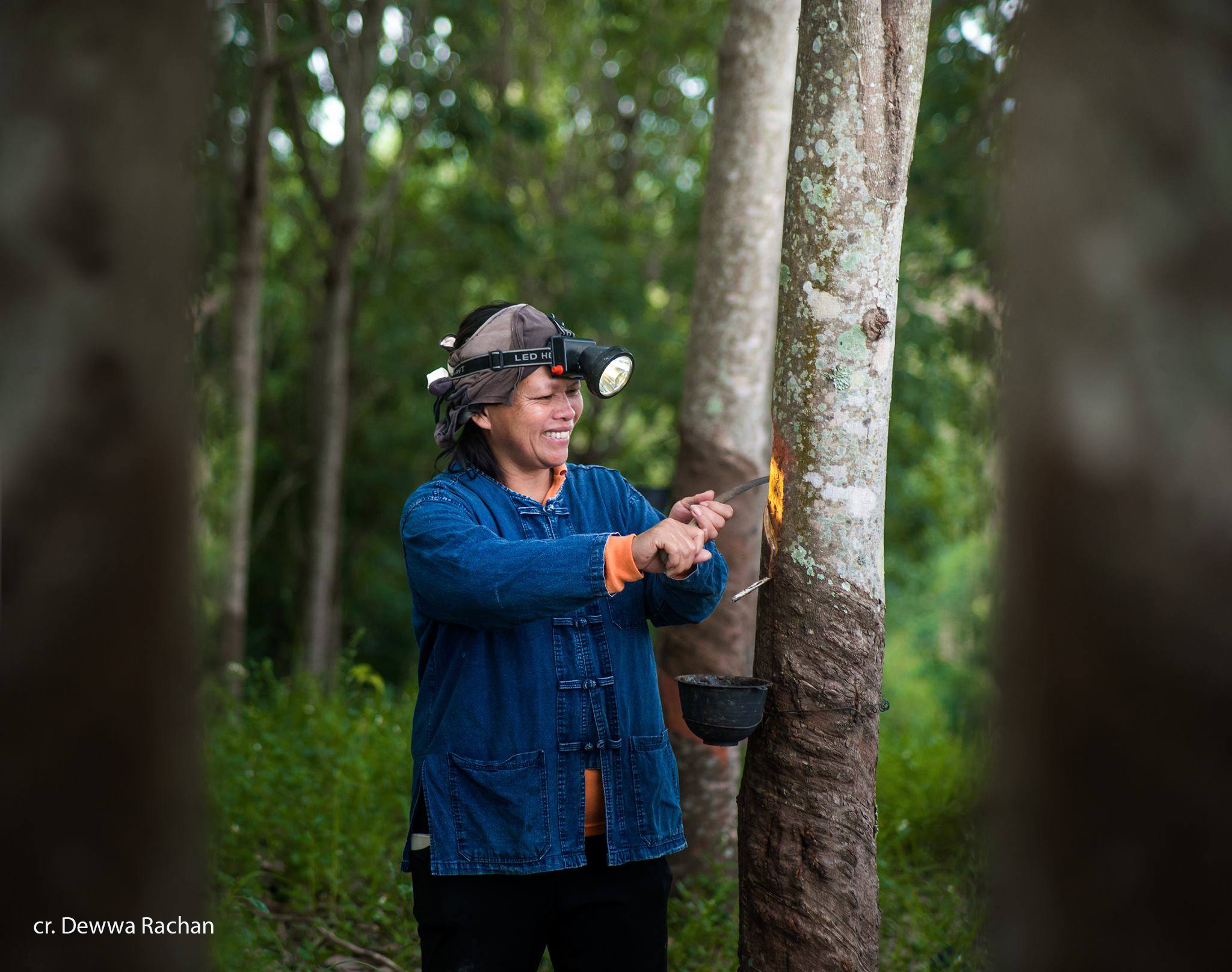PEFC is mounting a drive for greater commitment to sustainability in the production and supply chain of rubber, which will help the global industry bounce back better after the devastating impact of the coronavirus pandemic and grow in line with the Sustainable Development Goals for many years to come.
“Rubber is Everywhere. PEFC is, too.”

Natural rubber is an essential raw material used in the creation of more than 40,000 products. It represents a USD300 billion supply chain involving 40 million people (IRSG, 2019).
But despite the major role rubber plays in our lives, few of us are aware of how many items that we interact with everyday contain it. Fewer still can explain the difference between natural rubber and synthetic rubber. The figures may surprise you:
- 47% of the global rubber supply is natural, derived from about 14 million hectares of plantations around the world.
- In 2018, the total value of that rubber was US$40.71 billion.
- In 2019, natural rubber production reached 13.6 million metric tonnes.
- 70% of natural rubber goes into tyre production.
- Rubber plantations produce more than rubber! About 63 million green tonnes of rubber wood are produced annually.
- Rubber wood is the world’s most widely traded tropical hardwood (ITTO, 2017).

Despite the size of the industry and the complexity of the supply chain, the sources of this natural rubber are quite modest. 85% is produced by six million smallholders, tapping and tending rubber trees on independent plantations. Most of these plantations are in Thailand, Vietnam, Indonesia, and Malaysia. PEFC is there, too. We have 20 years of experience championing the rights of smallholders and forest operators in Southeast Asia.
PEFC is a member of the International Rubber Study Group (IRSG) and a founding supporter of the Global Platform for Sustainable Natural Rubber (GPSNR). PEFC collaborates with these important global rubber industry organisations, along with countries and companies at both ends of the supply chain.
And just as PEFC provides chain of custody certification for products originally sourced from forests, like furniture, flooring, paper and packaging, we’re ready to do the same for natural rubber and rubber wood, whether its end use is for rubber tyres for vehicles or footwear for athletes.
Visit our Supporting Sustainable Rubber website to find out more.
The Rubber. And the Road it Travels.

Managing rubber plantations sustainably means fewer negative environmental and social impacts from the production of natural rubber and rubberwood. It also increases the economic viability of the plantation itself, improving productivity over the long run. This is good for the smallholder, good for the plantation, and good for the neighbouring forests.
PEFC sustainable forest management and chain of custody certifications work together to achieve this, tracking natural rubber and rubber wood from the plantations to the final products. It provides independently verified assurance that the certified materials contained in a product originate from sustainably managed and certified rubber plantations. PEFC certification is available to all companies that manufacture, process, trade or sell natural rubber and rubber wood products.
Many smallholders pursue certification together, through our group certification mechanism. This helps reduce costs and allows for the sharing of roles and responsibilities to achieve the common goal of PEFC certification.
Key objectives for Supporting Sustainable Rubber
Our Supporting Sustainable Rubber campaign aims to strengthen PEFC’s presence in the Natural Rubber and Rubber Wood industries by:
- Building awareness, engagement, and demand for PEFC certification
- Diversifying to new and expanding existing industry opportunities
- Increasing PEFC visibility and chain of custody uptake
Collaborating and Storytelling
Partnerships are crucial to the natural rubber production and supply chain. They will also be essential to ensuring its sustainability. We have identified four categories where partnerships are essential to develop:
- Company-led procurement policies
- Local capacity and infrastructure building
- Public policies to enable legal frameworks
- Transformation of production to improve yield and quality, as well as living incomes
A part of that partnership is also working together to tell the story of rubber smallholders, the natural rubber and rubberwood supply chain, and share that story with our networks. PEFC is developing a suite of infographics, editorial images and videos that are available for you to adapt and share.

So how can you partner with PEFC? Will you go out of your way to include smallholders in your sustainable supply chain? Will you help spread the word about Aree, and other smallholders who produce the rubber that makes so much of our modern life possible? Whatever your role, we want to hear from you!
Contact us This email address is being protected from spambots. You need JavaScript enabled to view it. and visit our Supporting Sustainable Rubber website for more information!


